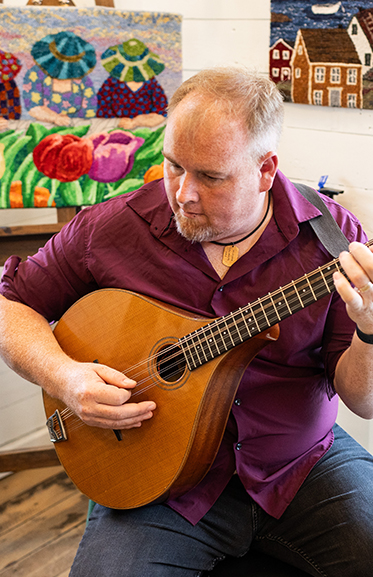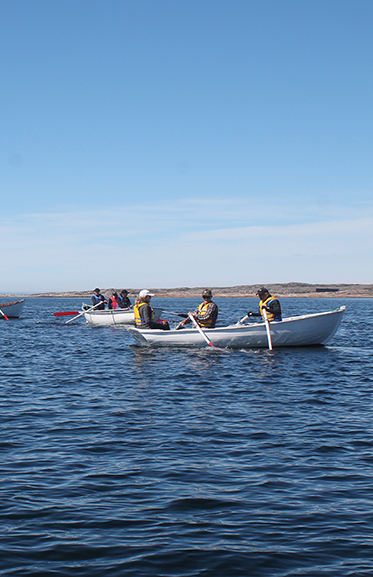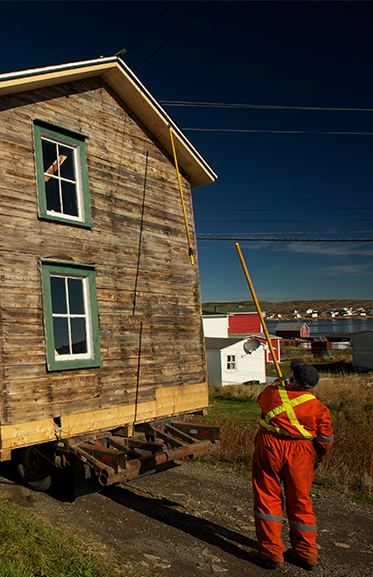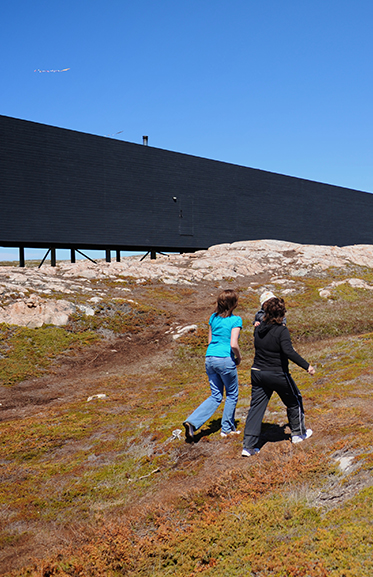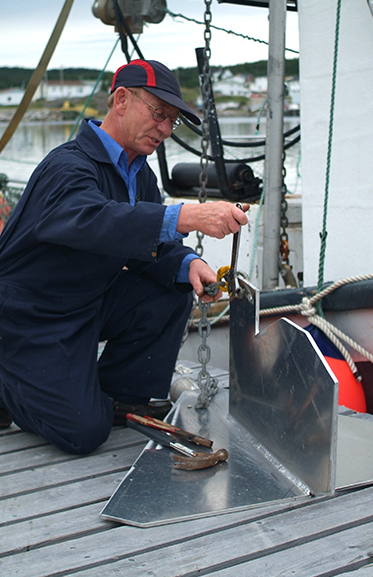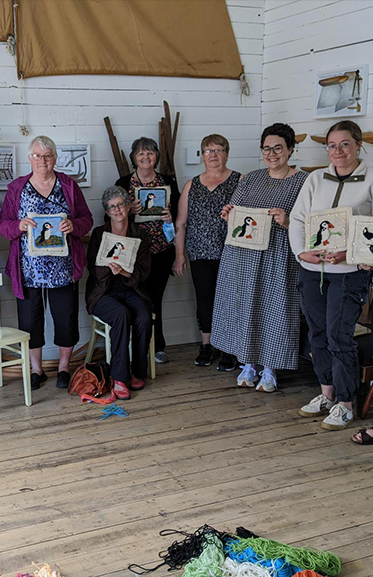History
Fogo Island was once a seasonal settlement for the Indigenous populations of Newfoundland and Labrador, followed by European sailors and explorers lured by the resource-rich waters of the North Atlantic.
It was fishers who eventually established a home amidst the island’s untameable landscapes.
It was fishers who eventually established a home amidst the island’s untameable landscapes.
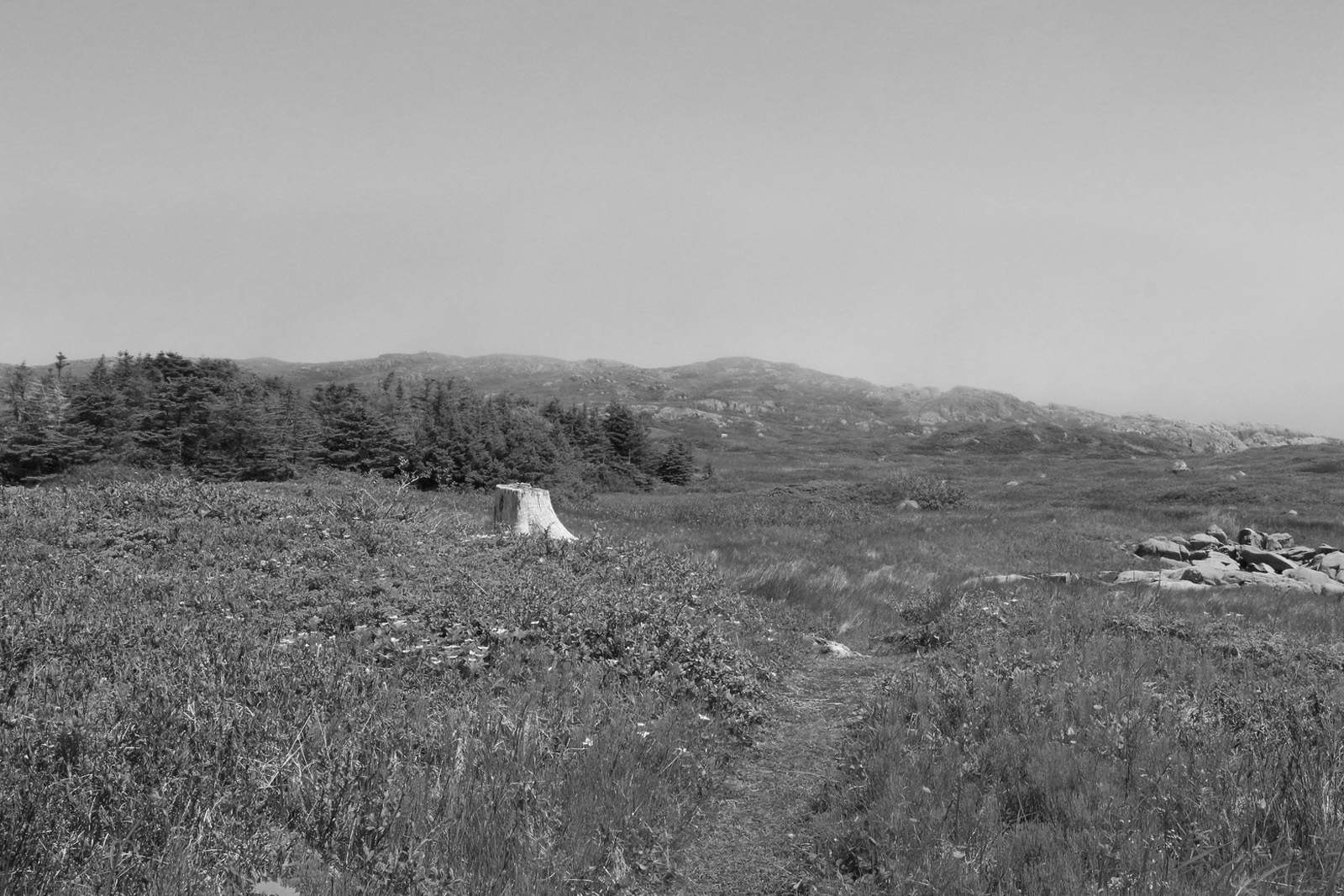
Indigenous Peoples
Archeological studies show that Fogo Island was mainly used as a summer fishing and hunting station for the Maritime Archaic and Beothuk people who resided around Notre Dame Bay. The area surrounding the bay, and the rivers that flow into it, formed their spiritual heartland.
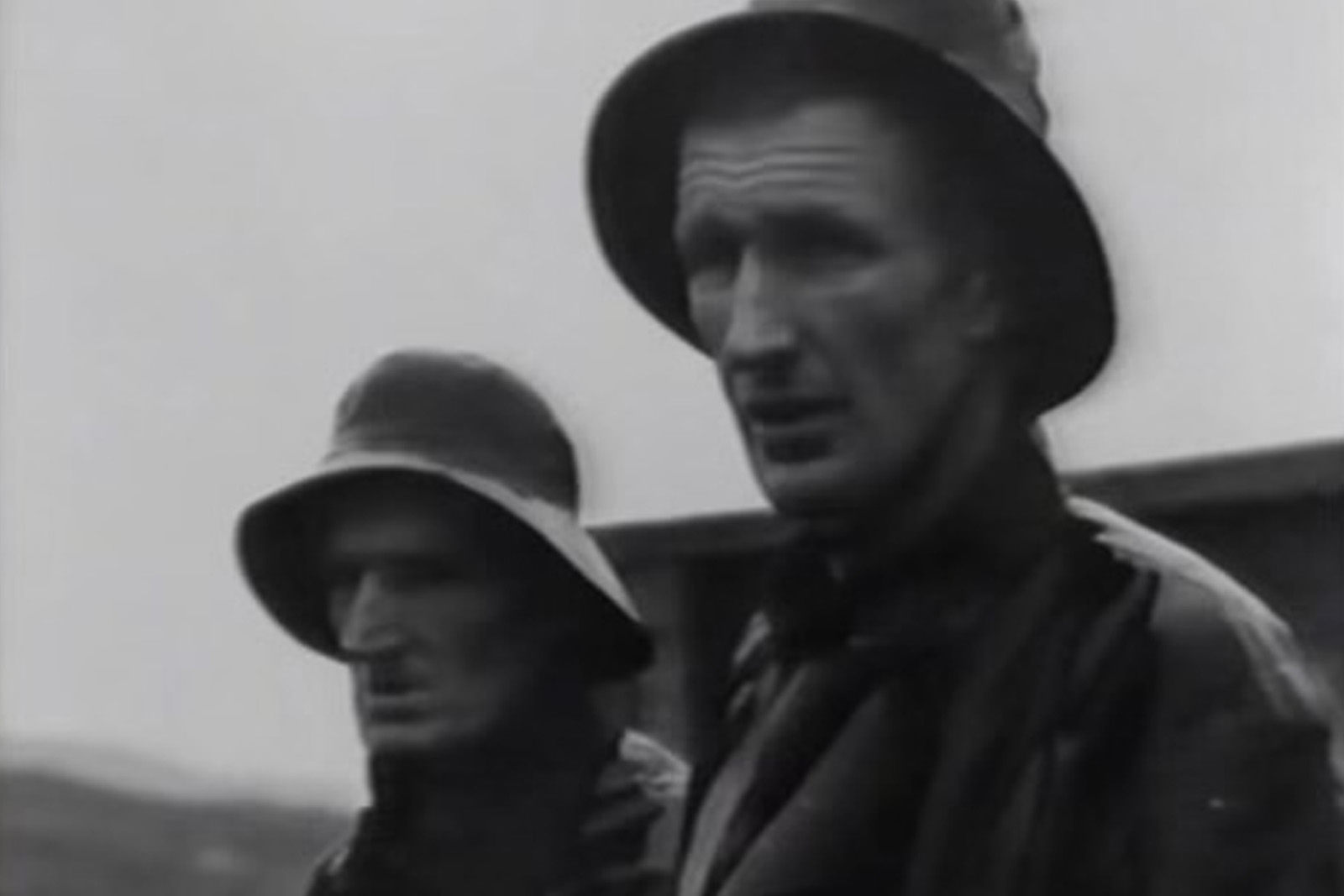
Ancestors
The first records of year-round residents on Fogo Island date from the mid-18th century, lured by the trade and fishing of cod. Resourceful and self-sufficient, they came from south-east Ireland and the west coast of England, bringing with them their respective dialects that still linger in the lilt of Fogo Islanders.
Follow our roots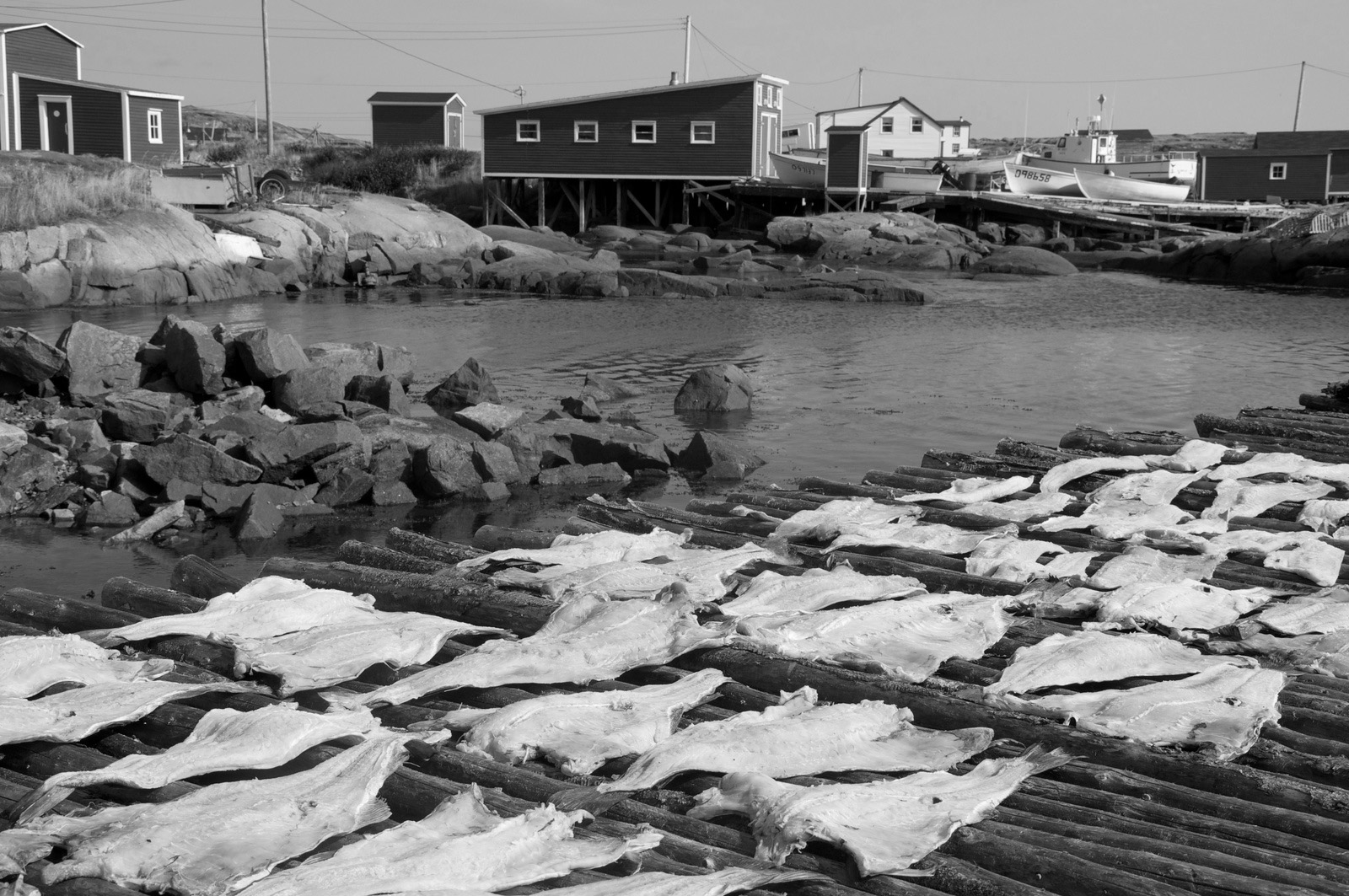
Cod Fishing
For centuries, Fogo Islanders sustained themselves and supported their families through fishing. The Atlantic cod is intrinsically linked to the history of Fogo Island; it has formed the backbone of its economy and culture.
In 1992, the Canadian government imposed a cod moratorium that led many to move away. Despite it all, the community found ways to hold on to their home.
Learn about cod fishingIn 1992, the Canadian government imposed a cod moratorium that led many to move away. Despite it all, the community found ways to hold on to their home.
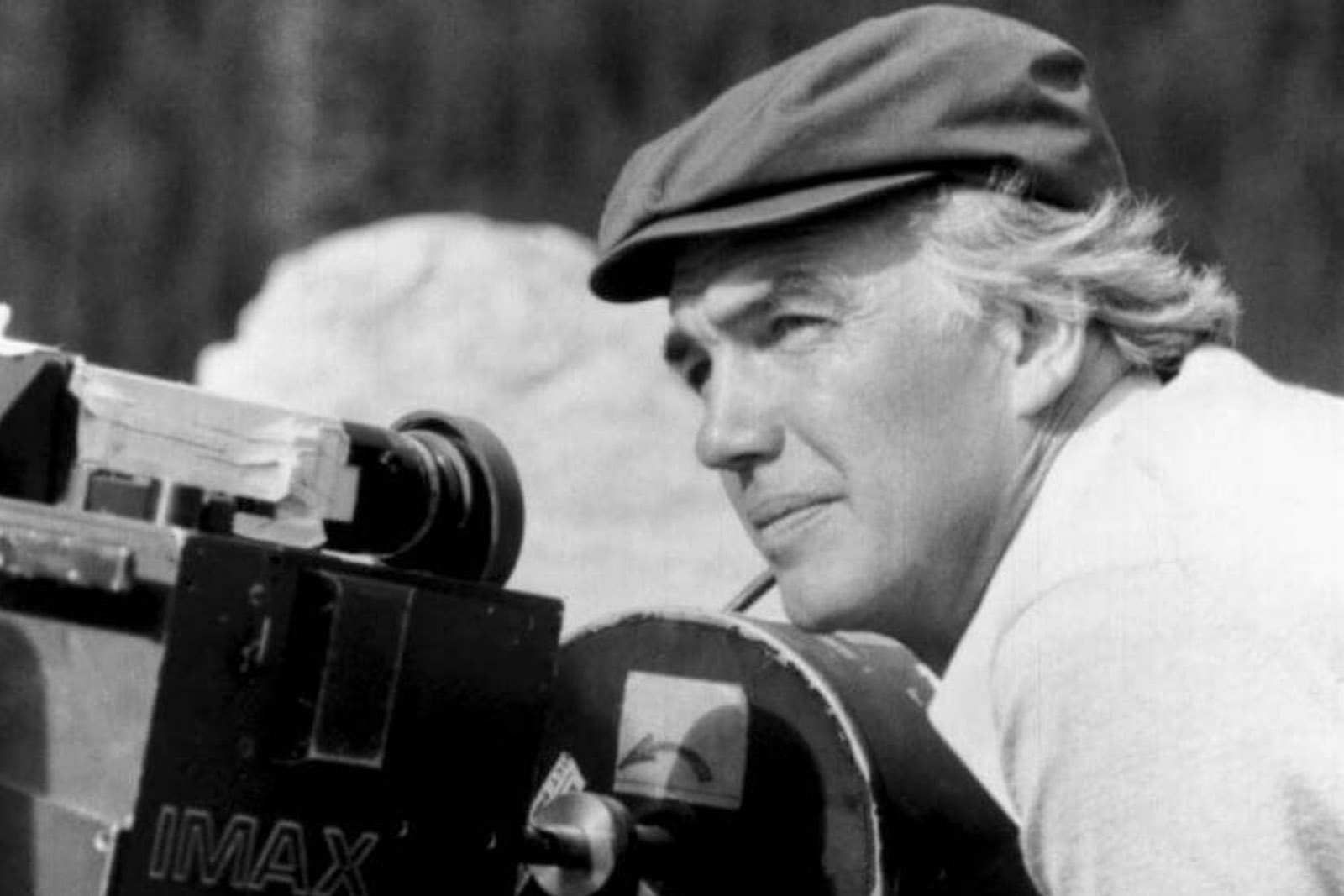
The Fogo Process
Fogo Island has a long history with art. In the late 1960s, with the threat of resettlement looming, the island was the location for a filmmaking project that emerged from the National Film Board’s Challenge for Change program which used film to promote community collaboration and social change.
The films, all directed by Colin Low, highlighted a growing awareness of communal interests that led to the formation of the Fogo Island Fishing Co-Op, which still exists today.
Watch themThe films, all directed by Colin Low, highlighted a growing awareness of communal interests that led to the formation of the Fogo Island Fishing Co-Op, which still exists today.
Fogo Island Today
Fogo Island’s history of self-reliance and relative isolation led to the development of a community composed of innovators, makers, artists, fishers, and storytellers who continue to build on the past to fortify the future.
Meet our community